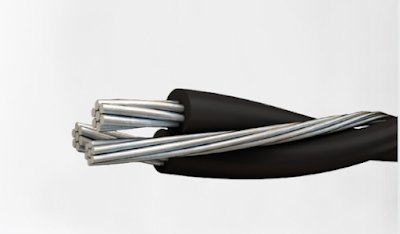7 Reasons why copper cables are used as electrical cables
You might have noticed that copper is a widely used material in approximately every electrical cable. But what is the reason behind it?
Every electrical device, from a kettle to enormous blast furnaces, has some bare copper. Copper is now used in practically every part of life and is regarded as the crucial component in altering electrical science due to its exceptional physical and electromagnetic capabilities.
The most traditional engineering wires that can be utilized for repairing and replacing damaged electric lines are bare copper electric cables.
What are the various types of copper electric cable used for?
Copper has been a staple material in numerous electrical applications since the development of the telegraph and electromagnet.
When copper wire was utilized as an electrical conductor in the development of the telephone and later as a key component in power generation and transmission systems, its demand increased.
Copper is now a necessary metal that is utilized in both home and commercial electrical wiring.
Today, copper is used in many different applications, including telecommunications, home appliances, and electronic circuitry.
Why is copper widely used in electrical cables?
Wires used in electrical systems are one application for copper. It's likely constructed of copper, whether it's a power wire for a TV, computer, kitchen appliance, or construction tool.
This reddish-brown metal, which has the atomic number 29, has become indispensable to our daily lives by powering numerous electronics. But why is copper chosen over other materials to make electrical cables when there are other materials that can conduct electricity? Let’s see why and how it works?
Good conductor of electricity
Copper is a good conductor of electricity and has effective resistance.
The bare copper wire can be utilized in circuits and overhead power transmission lines because of its electrical conductivity. Automobiles, large machinery, industrial transformers, and submarines all use them.
Corrosion resistance
In addition to its other mechanical qualities, copper possesses exceptional corrosion resistance, making it one of the ideal metals for use in electrical transmissions.
It can be used in wires, pipes, and even radiators because it has a low reactivity series and does not corrode.
Higher-quality magnetic characteristics
The magnetic characteristics of the bare copper wires are noticeably stronger than those of other naturally occurring metals. It can be used to create magnetic bars and solenoids.
The majority of instruments are made of copper, and the bare copper wires ensure that magnetic stray currents won't impact the component's electrical characteristics. Most elements struggle with problems caused by mixing the two qualities.
Magnetic compasses, ship navigation systems, cockpit systems for airplanes, and radio frequency catchment antennas all employ bare copper wires.
Durability
The copper wires' longevity qualities are unmatched by any electrical wire component.
Bare copper wires are frequently used in fast-moving machines and appliances where they must function continuously under high temperatures and vibrations due to their durability and exceptional resistance to wear and tear.
The strain can be endured by bare copper wires for a lot longer than it can by standard cables.
The resilience of copper wire enables it to be utilized in situations where machinery is exposed to corrosive processes, chemical reactions, and atmospheric abrasion caused by moisture, salinity, and grease.
Ductility
The incredible ductility of the bare copper wires makes them the preferred material for use in smaller devices with constrained utility and space.
The bare copper wires can be drawn into thin wires with small diameters thanks to their ductility.
The strain in diameter does not alter the electrical qualities, thanks to this technical characteristic endowed with physical characteristics.
Benefits of alloy
It is also possible to alloy and cover bare copper with other metals. The most common metals that are alloyed with bare copper wires to increase their electrical qualities and guarantee a noncorrosive environment are nickel, zinc, and tin.
By using electroplating alloys, the atmosphere and abrasive substances are kept chemically isolated from the bare copper wires. In order to further prevent deterioration, the bare copper wires can additionally be adequately externally coated with insulation.
Inexpensive
Comparatively speaking to other metals, copper is likewise a cheap metal.
For instance, gold is a superior electrical conductor, but it is far more expensive than copper.
Copper is more conductive and less expensive than gold; thus, using gold to make electrical cables would effectively be a waste of money. For this reason alone, copper should be the de facto standard for electrical wires.
Conclusion
One of the most useful metals on earth, copper is widely distributed and abundant.
If you want robust electrical cable and long-lasting services, then you should choose the best electrical cable company that manufactures quality electrical cables.
If you are on the way to selecting an electrical cable company, then Znergy Cable is one of the best electrical cable manufacturers in Australia.




Comments
Post a Comment